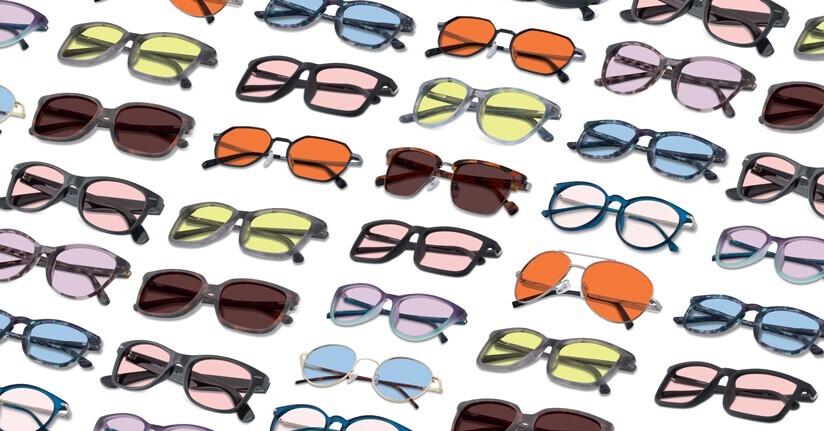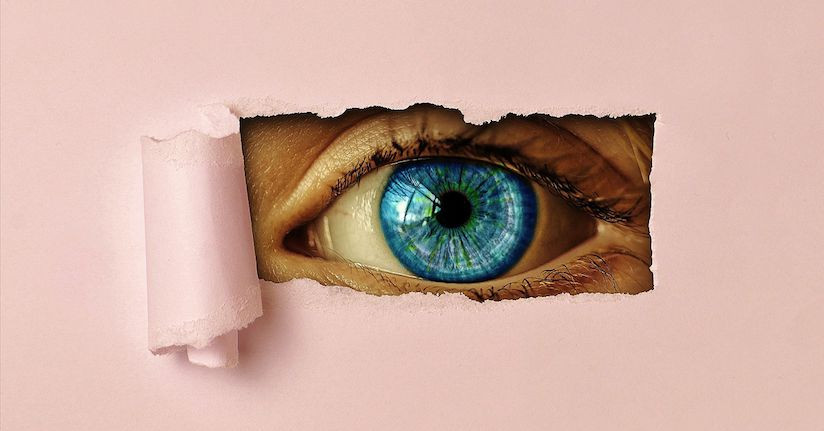What Causes SUDDEN Light Sensitivity?
Light sensitivity can be an unwelcome surprise in certain situations, bringing quick and unpleasant discomfort to the eyes and brain. It is imperative to discuss any such sensations with your doctor or an eye care specialist in order to rule out a more serious injury or condition. But there are possible medical explanations for why you might have sensitivity to light all of a sudden— including times when you least expect it.
Emerging from a dim or dark space
Have you ever left the movie theater during the day and had to immediately close your eyes because of the bright sunlight? Transitioning from a dark place to an well lit environment can spark this sensation, primarily due to the dilation of the pupils. Fortunately, this is almost always temporary until your eyes adjust to the new level of light.
Taking off your sunglasses
Similar to the movie theater example, taking off your sunglasses outside after extensive use bombards your eyes with intense light; this can lead to constant blinking or the need to keep your eyes closed. This feeling can be even more intense if you wear sunglasses regularly indoors (a common practice among people with migraine, for instance) because it diminishes your overall tolerance for light—a side effect known as chronic dark adaptation.
Excessive eye rubbing
We all have probably had those moments where we rub our eyes a little too hard. Unfortunately, this type of behavior can irritate your eyes and eyelids as well as increase cranial pressure and disrupt blood vessels in and around the eye. This can ultimately lead to a host of other abrupt symptoms like light sensitivity. Even worse, it could actually cause other eye injury or infection and result in longer-lasting problems.
An oncoming migraine attack
Light is often intense for a person with migraine or another headache disorder. According to prominent headache special Dr. Michael Ament, a sudden onset of light sensitivity may actually be the first sign of an impending migraine attack—often to be followed by acute headache pain and other symptoms.1 And of course, we know that light exposure can trigger these symptoms as well.
Concussion or other neurological trauma
The force of a head trauma can have major neurological consequences. Light sensitivity is one of several eye-related side effects of concussion that can be reported by athletes, veterans and everyday patients upon sustaining the injury. It may only last a short amount of time and ultimately resolve itself as the injury heals, but there are instances where the symptom can become chronic as part of post-concussion syndrome.
Direct eye injury
An acute injury to the eye can also lead to sudden sensitivity to light, along with other issues such as blurred vision, eye pain and burning or watering of the eyes. You should see an eye specialist or ophthalmologist for correct diagnosis and treatment of these issues; proper therapeutic intervention will often take care of any light-related sensitivities as well.
Conjunctivitis (pink eye)
Conjunctivitis—also known as pink eye—is the inflammation of the tissue on the inner side of the eyelid and is one of the most common causes for rapid onset light sensitivity. However, this symptom is usually mild and temporary. There are many causes of conjunctivitis, including allergies (dust, pollen) and toxic agents (smoke, chlorine), which are not contagious. Some bacterial or viral causes however are more easily spread to others.
Iritis
Iritis is an inflammation of the front of the eye, known as the iris. The iris is responsible for how much light enters the eye as well as subsequent pupil dilation; it is not surprising then that infection or impairment of this part of the eye might influence its response to light. According to ophthalmologist Dr. Bruce Jackson from the Ottawa Eye Institute, iritis should be suspected for diagnosis if a patient has severe and immediate light sensitivity together with eye pain.2 Light exposure can also worsen the pain associated with iritis, which is often treated with prescription eye drops or steroids.
Retinal detachment
The retina is central to visual processing between the eye and the brain, a pathway which has also been implicated in the occurrence of light sensitivity. If the retina detaches from the eye, sudden development of light sensitivity, visual floaters or flashes and/or vision loss can occur. Although retinal detachment is more common for people over the age of forty and associated with other risk factors, it should always be treated as a medical emergency.3
Certain medications
You should double check the side effects of your prescription drugs because there are a number of medications that could instigate or worsen your sensitivity to light. In those instances where your medications are the suspected culprit, speak with your doctor about the proper course of action.
Prolonged exposure to bright light
Just like emerging from a dark environment can lead to immediate photophobic responses, so too can excessive exposure to bright light. For example, staring at the sun too long (such as during the recent solar eclipse) can lead to photokeratitis, which is a basically a sunburn on the cornea. Even if you do not experience long-term optical damage, you will often experience short-term light sensitivity, involuntary blinking, burning or watery eyes.
Corneal foreign body
Getting something stuck in your eye is no fun. If a piece of dirt or a small stone gets into the cornea, this can bring on the spontaneous discomfort when exposed to light. If the object is not removed quickly it could lead to further complications such as infection, inflammation, and chronic eye problems.
Dry eye
People with chronic dry eyes often deal with light sensitivity too. If you notice your eyes starting to itch or burn from general dryness, you may also find that you are far more sensitive to light than you were in the moments before. Doctors prescribe different treatments for these conditions, from medicated eye drops to eye inserts which produce artificial tears. The prescribed treatments often bring relief to both dry eye and light sensitivity.
Dilating eye drops
According to Alaina Hataye, O.D., eye drops that force your pupils to dilate are often used during eye exams for diagnostic purposes.4 Unfortunately, this also leads to short-term sensitivity to light, even for somebody who has never experienced it before. This dilation can last up to 24 hours, during which time the side effects usually wear off.
So with all these causes for spontaneous sensitivity to light, you might be asking: What can I do to deal with it? Click below to see some general guidelines for easing your light sensitivity.
References:
1New Report Reveals High Personal and Social Costs of Light Sensitivity. TheraSpecs, 2017. Retrieved from: http://www.prweb.com/releases/2017/10/prweb14768827.htm.
2Jackson B. How do I know when my eye problem is an emergency? When should I self-treat, go to my eye doctor, or head to Emergency? Ask the Expert, CNIB. Retrieved from: http://www.cnib.ca/en/your-eyes/ask-expert/eye-emergencies-0208/pages/default.aspx.
3Facts about retinal detachment. National Eye Institute, October 2009.
4Hataye, A. Is it necessary to have my eyes dilated during every eye exam? Mayo Clinic, February 2018. Retrieved from: https://www.mayoclinic.org/tests-procedures/eye-exam/expert-answers/eye-dilation/faq-20057882

TheraSpecs® Glasses for Light Sensitivity
Find the glasses that fit your needs and lifestyle, and stay protected from screens, fluorescents, unwanted blue light, sunlight, flashing lights, and more.
Shop Now



